Sharing is caring!
I have to admit I’m not the biggest fan of introducing Shakespeare into my yearly lessons. Sure there is a time and place for his work, but I take a firm stance on not teaching a Shakespearean play each and every year.
I do love teaching Macbeth since it’s short, gripping, and has so much to dig into that can be tied to contemporary life. However, when given the choice, I will most often turn to more contemporary drama in high school English classes.
I’m fortunate that I am now required to teach any specific texts so choosing more modern drama is an easy choice for me. But, I know that many teachers don’t have that option so Shakespeare remains a central part of many curricula. Plus, I know that there are teachers out there who are big, BIG Shakespeare fans!
With that in mind, tying Shakespeare to poetry can help students make deeper connections to the plays they’ll study in class. Keep reading for a selection of thematic poems for introducing Shakespeare plays that are both classic and contemporary!
This is the second in a series about poetry and revamping your Shakespeare unit. Check out the first post about introducing the man, the playwright, and his time with 5 different poems.
Upcoming posts: Paired poems for Macbeth, Romeo & Juliet, Hamlet, Twelfth Night, and Taming of the Shrew, plus, a new approach to teaching sonnets. Stay tuned!
Thematic Intro to Shakespearean Plays
An option for including poetry is to choose poems focused on specific themes that are common across so many of Shakespeare’s plays. Start by introducing Shakespeare’s plays with poetry using broader themes that will be examined in the play such as love, heartbreak, tragedy, death, and family relationships.
Poems about love and heartbreak
- Tonight I Can Write (The Saddest Lines) by Pablo Neruda – Read the poem.
- A classic Neruda poem about having a broken heart
- Choice by Angela Morgan – Read the poem.
- Poem about not wanting to choose someone else
- A Fallen Leaf by Ella Wheeler Wilcox – Read the poem.
- About young love lost
- [you fit into me] by Margaret Atwood – Read the poem.
- A four-line poem that has strong imagery and a gut punch of a message about toxic love and relationships
- You are tired (I think) by E E Cummings – Read the poem.
- About being exhausted by relationships and the effects of love
- Our Many Never Endings by Courtney Queeney – Read the poem.
- 2014 poem about divorce and the broken heart of being left
- Love Elegy in the Chinese Garden with Koi by Nathan McClain – Read the poem.
- 2017 poem about still loving someone even after they’ve gone
- This Was Once A Love Poem by Jane Hirschfield – Read the poem.
- 1998 poem about love and loss and still loving the person even after they’re gone
- Red Ghazal by Aimee Nezhukumatathil – Read the poem.
- 2003 poem about deciding to leave someone and then the feelings you have after you’ve left
- A ghazal is a form of an ode that originates in Arabic poetry

Poems about difficult relationships and death
- Feast on it by Cleo Wade – Read the poem.
- 2021 poem about healing after someone’s death
- And What Good Will Your Vanity Be When The Rapture Comes by Hanif Abdurraqib – Listen to the poem.
- Spoken word in the form of a dialogue reflecting on people both subjects have lost
- Dirge Without Music by Edna St. Vincent Millay – Read the poem.
- About trying not to close oneself off from others as a result of being surrounded by death and tragedy
- It Was Not Death I Stood Up For by Emily Dickinson – Read the poem.
- About depression and the response to what’s happening in life
- And check out the analysis notes.
- What Changes by Naomi Shihab Nye – Read the poem.
- 2015 poem about the loss of a father
- The History of Mother and Sons by Lisa Furmanski – Read the poem.
- 2008 poem about mother-son dynamics from birth through life
- He Resigns by John Berryman – Read the poem.
- About being sad after someone’s death
- Speaking of the future, Hamlet by Mary Jo Bang – Read the poem.
- Direct reference to Hamlet but overall about family dynamics and tragedy

How To Teach These Poems
Start by choosing 2-3 poems specific to the theme of the play you’ll be studying. Then you can make a choice:
- Use the poems as an opening activity to preview and predict the content of the play
- Use them part-way through the play to encourage making connections
- Use them as part of a concluding activity to the study of the play to ensure understanding and have students make deeper connections
- Use the same poem at the beginning to preview the play and then at the end to get students to dig deeper now that they have the content of the play to work with for analysis.
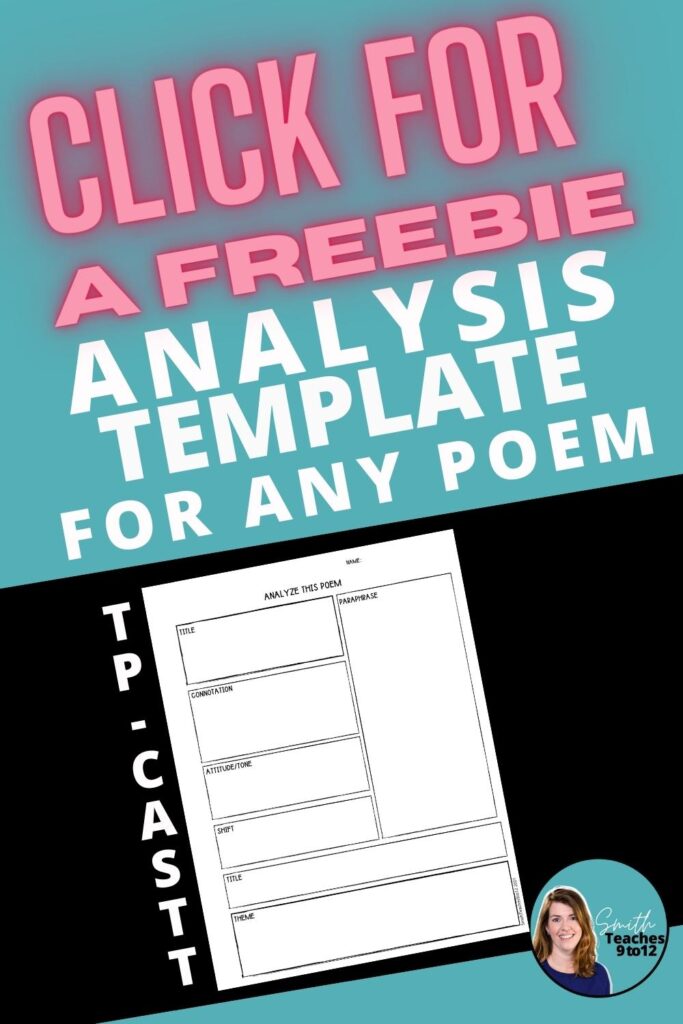
Structuring The Poetry Lesson
- Read the poem.
- Identify and define any unknown words.
- Review the rhyme structure, if any. Make out the rhyme scheme (This helps to see where there might be an emphasis within the poem, what words/lines rhyme, and what might the effect of that be on the meaning of the poem?)
- Use the note & notice approach to the poem. What stands out? This can be lines, words, a specific sound, or an image.
- Then, work through a graphic organizer such as a TP-CASTT. Download your free copy of a TP-CASTT and guiding prompts for it here.
- When there is some understanding of the poem’s content and structure, shift to how this can relate to the play.
If you plan to revisit the poems, ensure students keep a copy of their initial notes. A good way for this is to make a copy of the poem with adequate space around the poem for notes. This could be a printed copy on larger chart paper for small groups to allow for multiple comments from different group members.
TEACHER TIP: If completing as a small group, get students to write in different colors. They can record their name in their color too. This provides a quick visual accountability check for who is contributing and the level of their contributions. This is particularly helpful when gathering info for conversations and observations that might contribute to a student’s grade on the activity.
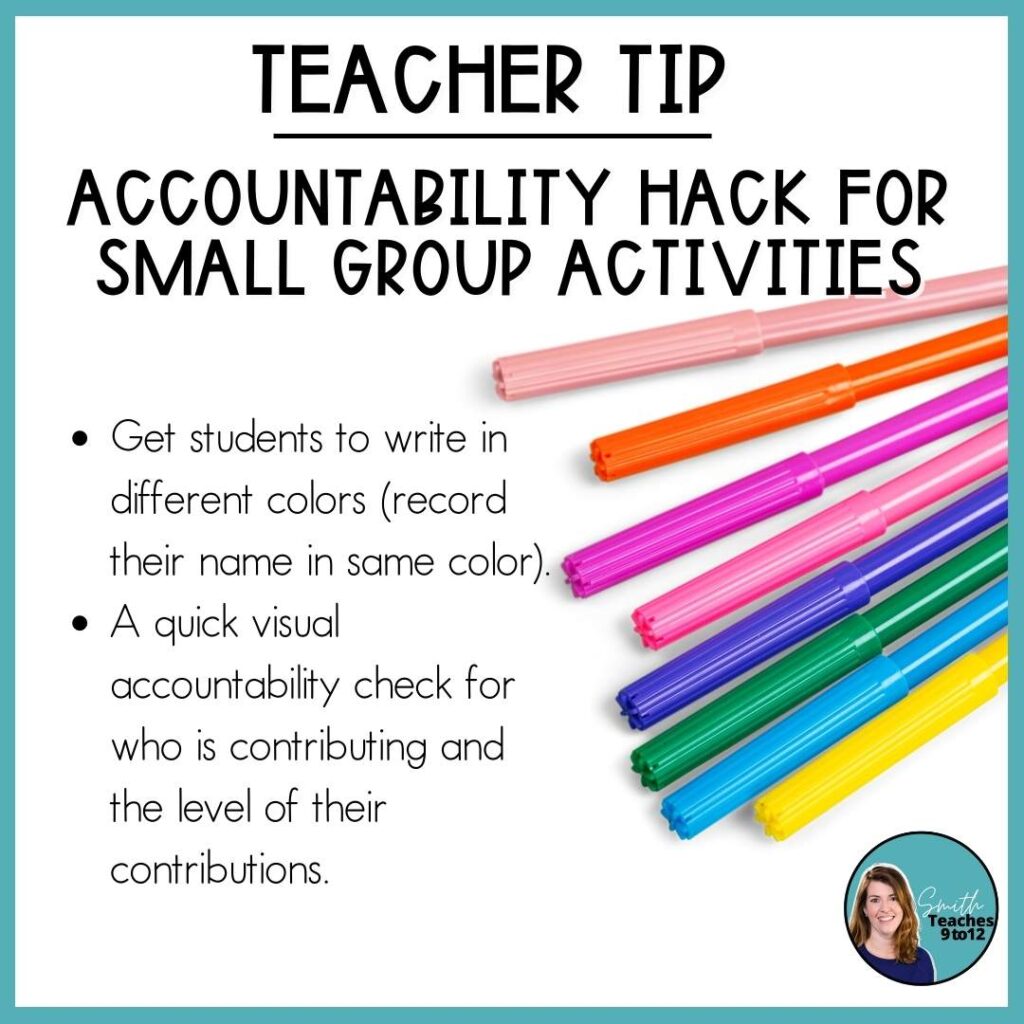
Wondering how else you could use poetry in your drama or novel study? Check out this post with many ways to incorporate poetry into ANY fiction lesson or unit!
There really are so many options for poetry! Stay tuned for an upcoming post about poetry and specific Shakespearean plays, plus another post about teaching Shakespeare’s own poetry!


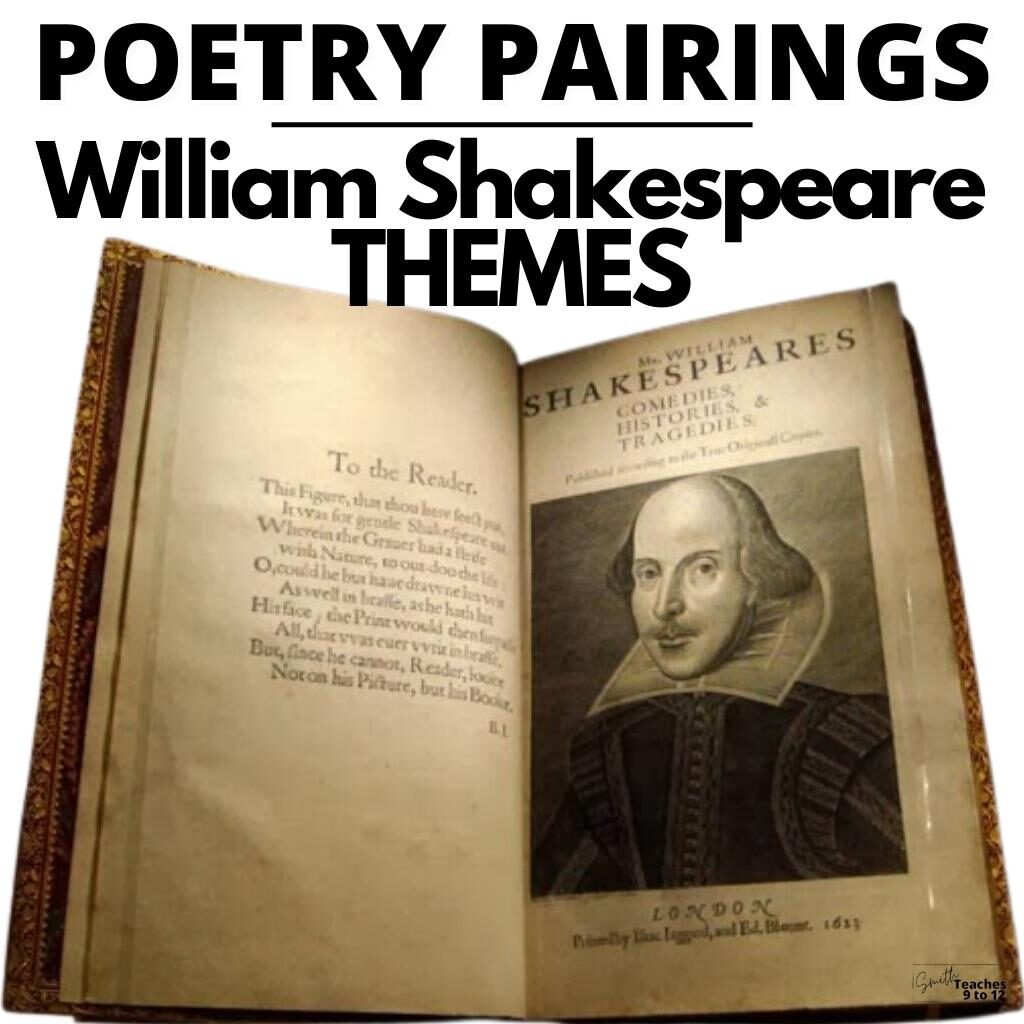

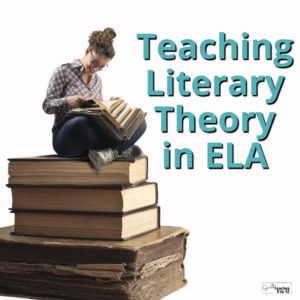
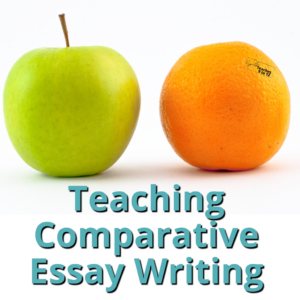

3 Responses